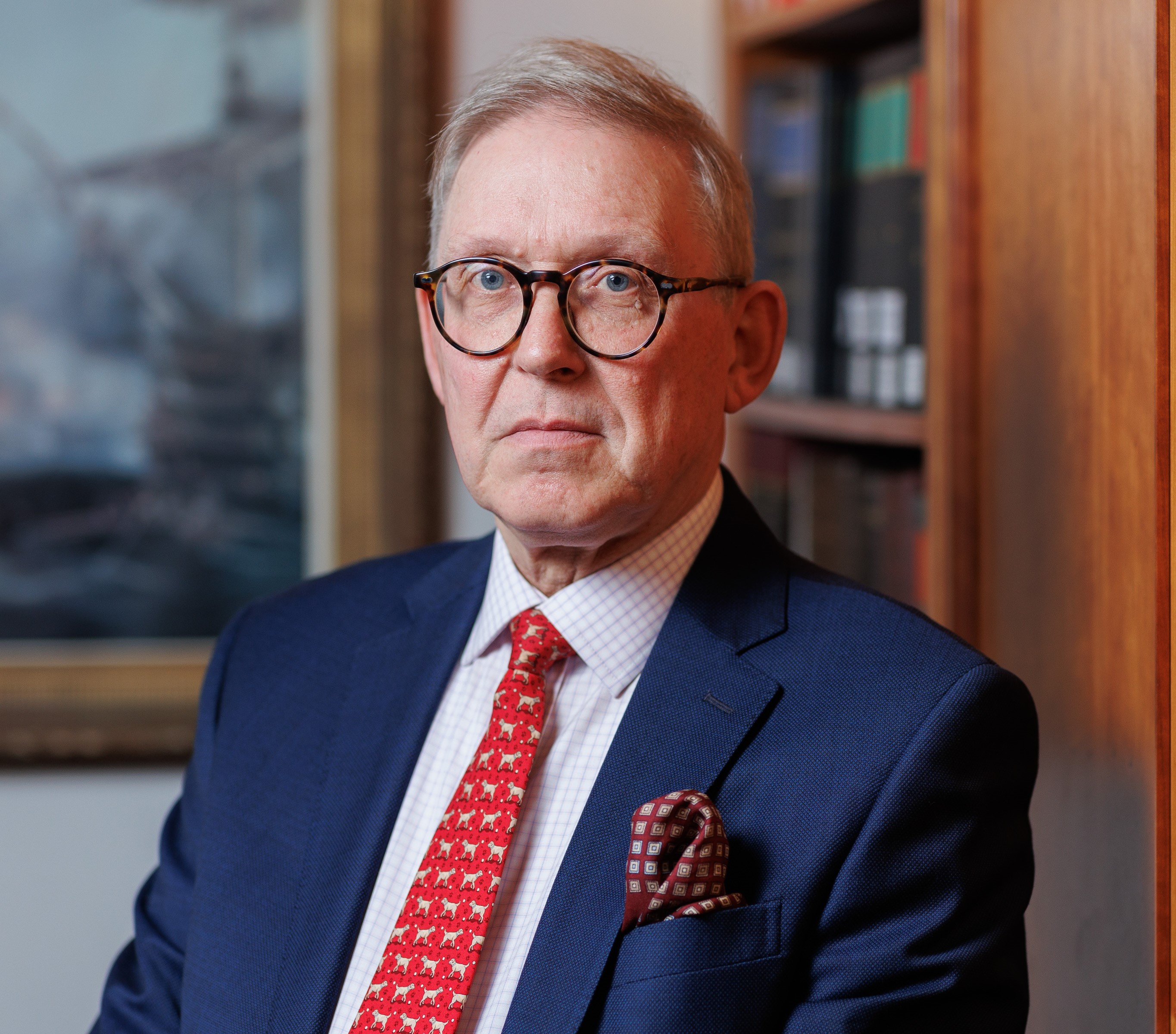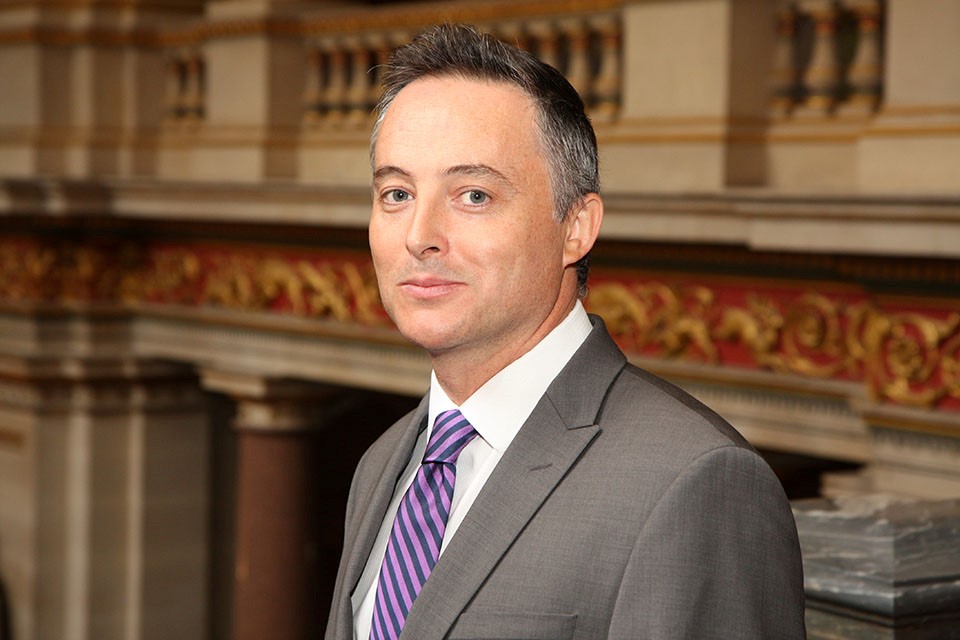Scottish COVID-19 Inquiry Newsletter: Issue 5 (Summer 2023)
Sign up below to receive Inquiry newsletters and other news updates directly to your email inbox.
Introduction from the Chair
On Monday 28 August the Inquiry held its first public hearing and I would like to express my sincere gratitude to everyone who attended in person or watched online.
This preliminary hearing for health and social care provided an opportunity to share the approach I intend to take to the task I have been set, which is to establish the facts of, and to learn lessons from, the strategic response to the COVID-19 pandemic in Scotland between 1 January 2020 and 31 December 2022.
Following this key milestone, I would like to reiterate how honoured I am to have been entrusted with such an important undertaking on behalf of the people of Scotland, and to reaffirm my commitment to conducting a robust investigation without fear or favour. Preparations are now under way for our health and social care impact hearings, which are scheduled to begin on 24 October.
Since our last newsletter, we have welcomed Ian Duddy, Chief Executive, and Gordon McNicoll, Interim Solicitor to the Inquiry. Finally, thank you to everyone who has contributed, or who is planning to contribute, to the Inquiry through our public participation project, Let’s Be Heard. Let’s Be Heard has received more than 3,000 responses from individuals and groups and will continue its national engagement phase until the end of this year.
It is important that we hear from as many people as possible so we can understand the different ways people have been impacted by the pandemic.
To find out more about Let’s Be Heard and how experiences can be shared, please visit the Let’s Be Heard website: lbh.covid19inquiry.scot.
Lord Brailsford, Chair to the Scottish COVID-19 Inquiry

Preliminary hearing
The Inquiry’s preliminary hearing for health and social care took place on 28 August in Edinburgh and was an opportunity for Lord Brailsford, Chair to the Inquiry, to share with core participants, and the wider public, how he intends to run future public hearings.
The preliminary hearing was livestreamed on the Inquiry’s YouTube channel and can be watched on demand on the Inquiry’s website, alongside a short film screened at the hearing, which was produced by the Inquiry as formal and lasting recognition of the suffering caused by the COVID-19 pandemic to the people of Scotland. You can read the transcript of the preliminary hearing on the Inquiry website.
What is a preliminary hearing?
A preliminary hearing is an opportunity for the Inquiry to explain how it will go about its work. The Chair to the Inquiry made an opening statement and the hearing covered the practical and procedural matters relevant to the Inquiry and its core participants, such as timescales for hearings. Lord Brailsford also answered questions from core participants’ legal representatives
How the hearings will be structured
The Scottish COVID-19 Inquiry is taking a thematic approach to its investigations and hearings, at which we will hear evidence from people most impacted by COVID-19 in Scotland.
The three themes are:
- health and social care;
- education and young people; and
- finance, business, and welfare.
The first set of impact hearings will focus on health and social care and will begin on 24 October 2023 at George House, Edinburgh.
These hearings will pause for the festive period and resume in February to avoid overlapping with the UK Covid-19 Inquiry’s Module 2A hearings, which concern Scottish matters and are scheduled to take place in January. Health and social care impact hearings are expected to continue until Easter and will be followed by impact hearings for the remaining themes.
This thematic approach seeks to bring the experiences of people in Scotland to the forefront of the Inquiry’s investigations, ensuring the human impact of the pandemic is captured at an early stage.
In July, the Inquiry held a ‘scene-setting’ evidence session on the epidemiology of COVID-19 to provide a factual background to support all further investigations and hearings. The two-day session can be viewed on our website, along with the session’s transcripts and associated reports.

Inquiry appoints Chief Executive
In July, the Inquiry welcomed Ian Duddy as its Chief Executive.
Ian is responsible and accountable for the overall administration and management of the Inquiry. Before becoming the most senior official to the Inquiry, Ian was Chair of the Scottish Human Rights Commission.
He has more than 20 years’ experience in leadership, advocacy and human rights, having previously worked in the Foreign, Commonwealth & Development Office. Ian has served as a senior diplomat, UK Ambassador, and led the Human Rights and Rule of Law Department, working on issues including war crimes, international justice, religious freedom and modern slavery. During his diplomatic career, his overseas postings included Argentina, Uruguay, Chile, and leading the UK Team at the UN Human Rights Council in Geneva. Before joining the diplomatic service, Ian worked in the financial services sector and as an English language teacher in Japan
Let's Be Heard
Let’s Be Heard is the main way in which the public can engage with the Inquiry and tell us the impacts they experienced during the pandemic, and the lessons they believe should be learned, so that Scotland is better prepared in future.

Experiences shared with Let’s Be Heard will help guide the Inquiry’s investigations and inform its reports. This will include identifying any disproportionate or unequal impacts on particular groups or communities.
So far, more than 3,000 individuals and groups have shared their experiences with Let’s Be Heard. While we have received responses from people in each local authority in Scotland, we have heard less from some areas than others.
These include:
- West Lothian;
- North and South Lanarkshire;
- Fife; and
- Highland and Islands.
We are keen for as many people as possible in these areas, and across Scotland, to engage with Let’s Be Heard.
We would also like to encourage more engagement from minority ethnic groups to ensure the Inquiry’s investigations and recommendations are informed by the impacts of the pandemic on members of these groups and the lessons they believe should be learned.
To take part, visit the Let’s Be Heard website, email LetsBeHeard@covid19inquiry.scot or write to Freepost SCOTTISH COVID-19 INQUIRY to request a paper form. You can also call and leave us a voicemail at 0808 175 5555.
We have an Easy Read version of the submission form, translations into some of the most commonly spoken languages in Scotland, and a form designed specifically for children and young people.
You can also hold a group discussion and take part as a group, family or organisation. An Engagement Guide to help you do this is available online, or you can request a paper copy. Where possible, the Let’s Be Heard team would be keen to attend group discussions to listen and take notes.
The closing date for the national engagement phase of Let’s Be Heard has been extended to 20 December 2023
Long COVID to form part of Inquiry’s investigations
Long COVID will form part of the Inquiry’s investigation into the devolved strategic response to the pandemic in Scotland.
The Inquiry was set up to investigate the devolved strategic response to the pandemic between 1 January 2020 and 31 December 2022 and is bound by its Terms of Reference, which set out the matters it can investigate.
In May, Lord Brailsford received a legal opinion from David Turner, Junior Counsel to the Inquiry. In it, Mr Turner states that the existence and effects of long COVID are relevant to the handling of the pandemic in Scotland, where these were known during the Inquiry’s defined period of investigation.
Although later developments in scientific knowledge may not fall within the Inquiry’s remit, Mr Turner considers that the experiences of, and impact upon, those affected by long COVID will be relevant to the scope of the Inquiry.
The Inquiry is investigating the impact of the pandemic in Scotland, the implementation of measures, and finally, key decision-making and planning.
Lord Brailsford determined, in line with Mr Turner’s opinion, that matters such as research into the future treatment of long COVID are outside the scope of the Inquiry. However, the Inquiry will look at healthcare impacts, such as long COVID, where these potentially affected the strategic response to the pandemic during the Inquiry’s defined period of investigation.
Website updates
Key protocols have recently been updated and amended:
- the Inquiry’s Protocol on Applying for Core Participant Status;
- the Inquiry’s Protocol on Leave to Appear; and
- the Inquiry’s Protocol on Public Access to Documents.
We would also like to draw attention to the following Protocols on the website:
- Restriction Order 1: Health and Social Care; and
- the Inquiry’s Protocol on Applications for Restriction Orders.
The Inquiry’s website has also been updated to include an area dedicated to hearings and presentations. Livestreams of hearings will be accessible from this page, as will transcripts and recordings of hearings that have already taken place.
Get in touch
As the Inquiry progresses, we will publish news updates and information on our website, including details of upcoming hearings and the publication of reports.
For general enquiries and correspondence for the attention of the Chair to the Inquiry, please email us at contact@covid19inquiry.scot.
You can also write to the Inquiry using this address: Freepost SCOTTISH COVID-19 INQUIRY
If you require accessible versions or a translation of any of the website’s content, please contact us using the email address above.
If you are a journalist and have an enquiry, please email us at media@covid19inquiry.scot.
To have the Inquiry’s latest news and announcements delivered to your inbox, sign up on our website.
